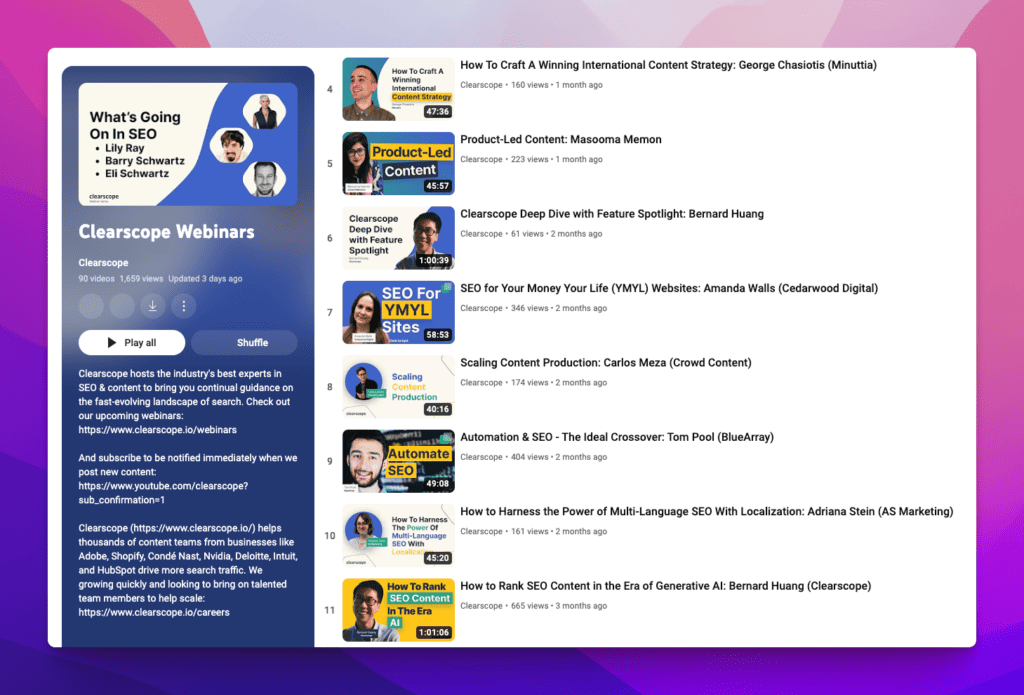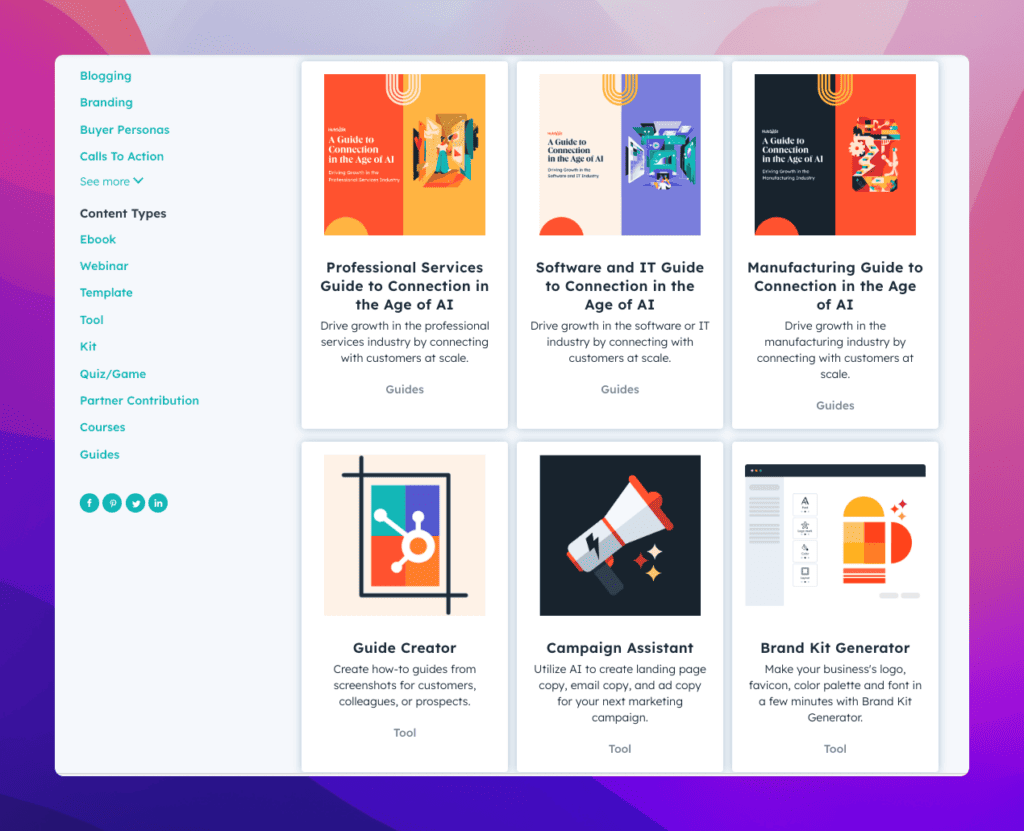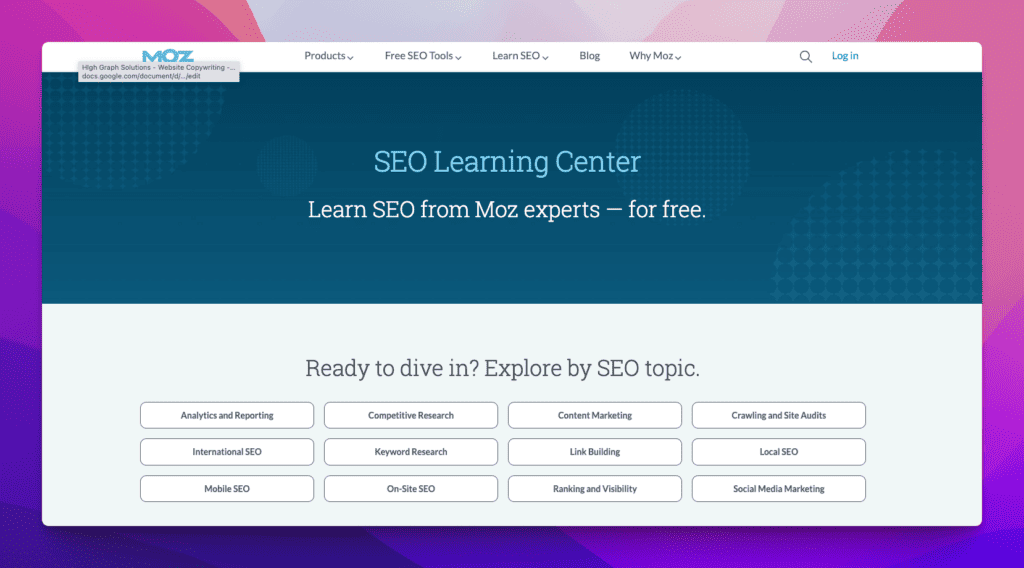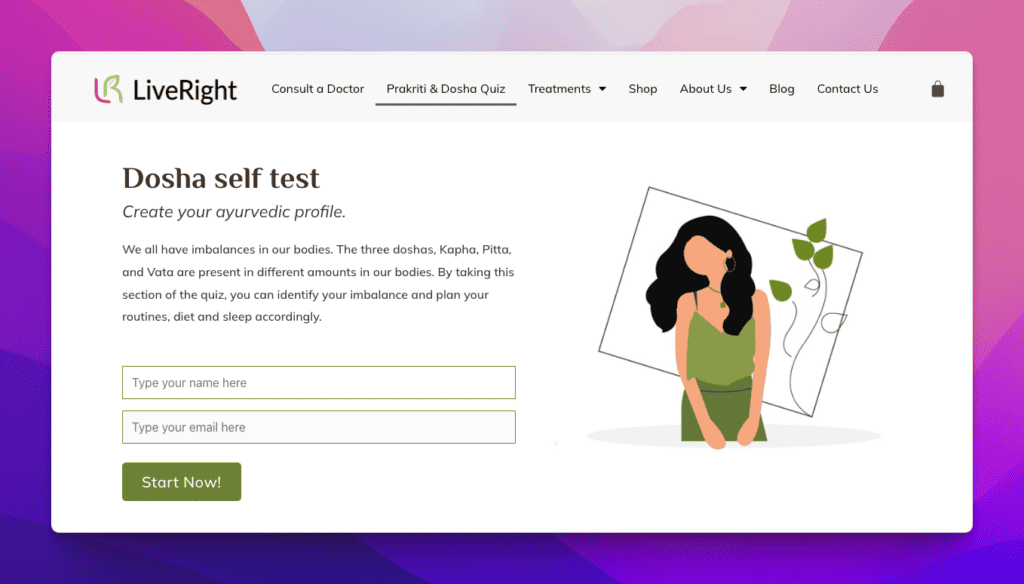Embarking on the startup journey, one cannot overlook the power of content marketing—an essential tool to amplify your message, engage the target audience, and scale your business. This guide unveils a tactical array of content strategies crucial for startups, from leveraging AI in content creation to navigating the common pitfalls that SaaS startups face. We’ll explore practical content marketing ideas to catapult your startup to success.
Why Content Marketing is Important for Startups?
Startups thrive on innovation, but even the most groundbreaking ideas need a voice. Content marketing is the megaphone that can broadcast your startup’s message to the world. It’s the linchpin in engaging customers, building brand authority, and driving growth.
In a landscape where every penny counts, content marketing provides cost-effective means to reach potential customers. By offering valuable information, startups can draw in an audience, establish thought leadership, and foster trust. This trust translates into a robust customer base, fueling organic traffic and potentially skyrocketing conversion rates.
Moreover, content marketing isn’t just about creation; it’s a strategic tool. Each piece of content is a step towards achieving a startup’s business objectives. It is about weaving narratives that resonate, distributing through channels that matter, and measuring every ripple it makes in the digital space.
This is your blueprint for harnessing content marketing to power your startup engine. Read on for ten actionable ideas tailored to startups eager to carve out their space in the business cosmos.
What is Content Marketing for Startups?
At its core, content marketing for startups is about crafting and sharing information that your target audience finds relevant and valuable. It’s a strategic approach focused on creating and distributing consistent, high-quality content to attract and retain a clearly defined audience.
For startups, content marketing serves several purposes:
- Establishes Brand Identity: It helps define your brand’s voice and personality, setting the stage for all customer interactions.
- Educates Your Audience: Content marketing informs potential customers about your products or services, explaining how you can solve their problems.
- Builds Relationships: By offering helpful and engaging content, startups can cultivate a loyal following and deepen customer relationships.
- Boosts Visibility: SEO-friendly content increases your visibility on search engines, putting you in front of potential customers actively seeking solutions.
- Encourages Engagement: Content designed to resonate with your audience prompts shares and discussions, growing your reach organically.
For a startup, content marketing isn’t just a tactic; it’s the heartbeat of a dialogue with your future customer base. It’s about ensuring that when your audience looks for answers, your brand is there to greet them—not just with a sales pitch, but with a rich, informative experience that positions your startup as the go-to in your industry.
In the next section, we’ll unpack the tangible benefits content marketing brings to startups, and why it’s a non-negotiable in your journey to market triumph.
What Are the Benefits of Content Marketing for Startups?
For startups on the cusp of growth, content marketing is the catalyst that can ignite brand visibility and foster meaningful connections. Here are the benefits distilled into a single, potent list:
- Enhances Brand Visibility and Awareness: Regular, visible content puts your brand in front of potential and existing customers, increasing recognition.
- Drives Organic Traffic and Search Engine Ranking: SEO-oriented content helps your website to rank higher, drawing more potential customers naturally.
- Cultivates Authority and Credibility: By sharing insights and knowledge, your startup can become the go-to source in your industry.
- Improves Engagement and Customer Retention: Engaging content prompts interaction and repeat visits, solidifying customer relationships.
- Increases Conversion Rates: Educational and persuasive content guides potential customers through the buying journey.
- Leverages Cost-Effective Marketing: Compared to paid advertising, content marketing can be less expensive with a longer-lasting impact.
- Builds Community and Customer Loyalty: Quality content can create a community around your brand, fostering loyalty and advocacy.
- Provides Valuable Data and Insights: Analytics on content performance offer valuable insights for refining strategies and tactics.
With the benefits laid out, let’s pivot to the tactical—the channels through which your content will forge paths to your audiences’ hearts and minds. Up next, selecting the ideal conduit for your stories and messages in a crowded digital landscape.
What Content Marketing Channels Are Available to Startups?
Content marketing for startups isn’t a one-size-fits-all affair. It’s crucial to select channels that resonate with your audience and align with your business goals. Here’s a roster of channels to consider:
- Blog Posts: The cornerstone of content marketing—an effective way to improve SEO and provide value to your readers.
- Social Media Posts: Platforms like LinkedIn, Twitter, and Instagram allow you to tailor your message and engage directly with your audience.
- Email Marketing: A direct line to your audience, email newsletters keep your customer base informed and engaged.
- Video Content: From product demos to thought leadership, videos are consumable and shareable content that can boost user engagement.
- White Papers and Ebooks: Longer-form content that showcases your expertise and can act as gated material for lead generation.
- Infographics and Visual Content: Easily digestible, shareable content that can help explain complex ideas quickly.
- Webinars and Podcasts: Interactive content forms that can humanize your brand and facilitate real-time engagement.
Choosing the right mix of channels is about understanding where your target customers spend their time and how they prefer to consume content. It’s also about consistency—a content calendar can be crucial for maintaining a steady presence on selected channels.
Now that you’re equipped with the ‘where,’ let’s explore the ‘what.’ What does the audience expect from startup content? Stay tuned, as the following section aims to decode audience expectations and align them with your content strategy.
What Does the Audience Expect from Startup Content?
Audiences gravitate towards content that resonates on a personal level. For startups, meeting these expectations is key to content marketing success. Your audience is looking for:
- Relevance: Content that addresses their specific interests, challenges, and needs.
- Authenticity: Genuine storytelling that reflects the startup’s ethos and values.
- Value: Information that educates, entertains, or solves a problem.
- Consistency: Regular updates that keep the audience engaged and signal reliability.
- Engagement: Opportunities for interaction, be it through comments, social shares, or direct communication.
Startups should focus on creating a content strategy that marries their business objectives with audience needs. This involves not only knowing who your audience is but also understanding their behaviors, preferences, and content consumption patterns.
Armed with insights into your audience’s expectations, it’s time to roll up the sleeves and dive into concrete content marketing ideas. The next section begins this journey, presenting the first of ten robust ideas tailored to infuse energy into your startup’s content marketing efforts. Stay tuned, as we’re about to unfold some game-changing tactics.
Idea #1: Leverage User-Generated Content
Objective:
Harnessing the voice of your customers to build trust and community.
What Needs to Be Done:
Encourage your customers to share their experiences with your product or service on social media, forums, and review sites. Create campaigns or incentives that motivate them to post about your brand.
Example:

Salesforce – #SalesforceOhana: This campaign showcased the company’s culture and values by sharing stories of employees and customers who embody the “Ohana” spirit. It helped to humanize the brand and make it more relatable to potential customers.
Idea #2: Create a Content Series
Objective:
To establish a recurring touchpoint that keeps your audience coming back for more.
What Needs to Be Done:
Plan a series of interconnected content pieces that delve into various facets of a central theme relevant to your startup. It could be a weekly blog post, a podcast episode, or a set of instructional videos.
Example:

SparkToro’s 5-Minute Whiteboard content series provides valuable insights into various aspects of marketing and digital advertising in a concise and engaging format. Rand Fishkin, the host, does a fantastic job of breaking down complex topics into easy-to-understand concepts.
Idea #3: Dive into Video Marketing
Objective:
To capitalize on the engaging power of video content to captivate your audience and convey your message more dynamically.
What Needs to Be Done:
Develop a series of short, compelling videos that highlight product features, customer testimonials, behind-the-scenes looks, or informative how-tos. The videos should cater to your audience’s preferences and be optimized for each platform they’re shared on.
Example:

e-Con Sytems, a leading manufacture of OEM cameras for embedded computer vision, created a series of short videos introducing their employees. This garnered interest in the company culture and attracted highly talented folks to seek employment with the organization.
As the saying goes, “Show, don’t tell.” Videos do exactly that – they show your startup in motion and create an audiovisual connection with your audience.
Idea #4: Develop Educational Content
Objective:
To inform and empower your audience, establishing your startup as a knowledge hub within your industry.
What Needs to Be Done:
Create informative content that addresses common questions, explains industry trends, or offers useful tips. This can take the form of in-depth blog posts, infographics, webinars, or even online courses.
Example:
Backlinko’s comprehensive on-page SEO guide demonstrates their expertise in creating actionable, in-depth content. By addressing common questions, elucidating trends, and providing practical tips, they empower audiences with invaluable SEO knowledge. This commitment to user experience and search intent sets a high standard for informative SEO content.
Education is a powerful content pillar that can yield long-term dividends in brand loyalty and authority. Ready to see how embracing thought leadership can augment this further?
Idea #5: Embrace Thought Leadership
Objective:
To position your startup as a forward-thinking, innovative leader in your industry.
What Needs to Be Done:
Craft content that shares insights, industry analysis, and forward-looking opinions. This includes writing think pieces, recording podcasts, or speaking at industry events. It’s about expressing ideas that provoke discussion and reflect the innovative spirit of your startup.
Example:

The Content Marketing Institute (CMI) emphasizes the importance of setting standards in content marketing to enhance strategies in their report titled “B2B Content Marketing Benchmarks, Budgets, and Trends: Outlook for 2024.”
Thought leadership is a journey rather than a sprint—a sustained effort that can heighten your startup’s profile and credibility over time.
Idea #6: Forge Content Collaborations
Objective:
Enhance your startup’s reach and generate new customer leads through strategic partnerships.
What Needs to Be Done:
Identify potential partners within your industry—be they influencers, industry experts, or non-competing brands—and collaborate on creating content that benefits both parties. This can range from co-authored blog posts to shared social media campaigns.
Example:

Clearscope fosters valuable content collaborations by teaming up top experts like Lily Ray and Barry Schwartz, allowing startups to gain insights through webinars and discussions. This demonstrates the power of strategic partnerships to enhance reach and generate leads.
Content collaborations can infuse your marketing efforts with fresh perspectives and elevated credibility. Partnerships like these can signal to search engines and potential customers that your startup is both influential and connected.
Idea #7: Utilize Inbound Marketing Techniques
Objective:
To attract potential customers organically through content that appeals to them at different stages of the customer journey.
What Needs to Be Done:
Craft a range of content types, from blog posts solving user queries to ebooks addressing niche topics, designed to draw in audiences at various points of their decision-making process. SEO content that ranks for specific search terms related to your industry is key.
Example:

HubSpot excels at this idea by developing diverse educational content, including blog posts, guides, templates, webinars, and online courses. This content informs and empowers their audience, establishing them as a knowledge hub. It addresses common questions, industry trends, and practical tips, enhancing brand authority and building a loyal audience base.
Through inbound marketing, your startup’s content becomes the beacon that guides users from their initial search to the point of purchase. This strategy relies on organic searches and uses a variety of content types, including SEO posts and valuable white papers, to pull in prospects.
Idea #8: Optimize with Data-Driven Insights
Objective:
Fine-tune your content strategy using analytics to drive better engagement and conversion rates.
What Needs to Be Done:
Implement tracking tools to collect data on your content’s performance. Analyze key performance indicators like engagement rate, bounce rate, and conversion rates. Use these insights to adjust your content plan, focusing on what resonates most with your audience.
Example:

Quintly’s comprehensive analytics tools empower businesses with insights into social media performance. By tracking KPIs like engagement and conversion rates across platforms, it enables data-driven content strategies for enhancing marketing efforts and achieving better results.
Data is the compass that guides the ship of content marketing, and when analytics are in the hands of skilled content creators, they’re equipped to deliver exactly what the audience craves. It’s not just about numbers; it’s about understanding behaviors, refining your content types, and enhancing the user experience.
Idea #9: Scale with SEO Content
Objective:
Boosting your startup’s visibility in organic searches by creating content that ranks well on search engines.
What Needs to Be Done:
Conduct thorough keyword research to uncover terms with high search volume but moderate to low keyword difficulty. Craft high-quality, SEO-rich content that seamlessly integrates these terms, balancing readability with optimization.
Example:

Moz’s SEO content hub interconnects optimized articles to target relevant keywords, enhancing visibility and offering valuable insights – a prime example of an effective SEO content hub.
By investing in SEO content that ranks, startups can establish a foundation for sustained organic growth. A solid SEO strategy leads to a treasure trove of organic traffic, positioning your startup as an accessible solution just a search away for your ideal customers.
Idea #10: Engage with Interactive Content
Objective:
To forge a deeper connection with your audience by offering content that invites participation and increases dwell time.
What Needs to Be Done:
Create interactive content such as quizzes, polls, surveys, or interactive infographics that require user input and offer personalized results or insights. This type of content not only engages your audience but also provides you with valuable data on user preferences and behaviors.
Example:

Liveright’s Prakriti Dosha Quiz exemplifies interactive content by involving user input to provide personalized health insights and recommendations. This engaging approach helps the audience gain insights while collecting valuable data.
Interactive content stands out in a crowded content landscape, offering a memorable user experience and promoting user queries directly to your startup. It’s a form of content that tends to have higher engagement rates and can result in valuable insights into your customer base.
Content Marketing Tips for Startups
With a suite of strategies at your disposal, let’s tweak the knobs to fine-tune your startup content marketing endeavors. Here’s how to ensure your efforts are effective and efficient:
- Know Your Audience: Create buyer personas to understand your primary audience and secondary audience—it’s crucial for targeting your content.
- Craft a Content Calendar: Organize your types of content, posting schedules, and promotional channels to maintain a consistent basis for your content marketing efforts.
- Set Realistic Goals: Establish clear, measurable content marketing goals aligned with your business objectives, such as raising brand awareness or boosting search traffic.
- Measure Your Success: Use key performance indicators to assess your content marketing success, from conversion rates to social shares.
- Utilize SEO Best Practices: Engage SEO experts or invest in SEO content training to optimize content for search engines, enhancing your online visibility.
- Experiment with Content Types: Don’t be afraid to vary your content. From audio content, like podcasts, to visual content, like infographics, find out what resonates best with your audience.
- Promote Your Content: Promoting your content effectively can dramatically expand your reach beyond organic growth. Learn more about engaging customers through our guide on email marketing for customer engagement.
- Leverage Customer Feedback: Engage with customer queries and feedback to create content that addresses their actual concerns and needs.
- Monitor Industry Trends: Stay ahead as an industry expert by creating promotable content that offers a unique take on current trends.
By applying these tips, startups can construct a content marketing plan that’s as efficient as it is effective, ensuring every piece of content works toward the larger goal of growth and brand reinforcement.
Content Marketing Toolkit for Startup Marketers
A well-crafted toolkit is vital for the startup marketer. Ensure your team has access to the best tools, including SEO tools, content management systems, and analytics platforms. Know more about how our content optimization services can enhance your content performance.
- Content Management Systems (CMS): Platforms like WordPress or Drupal to manage and publish your content.
- SEO Tools: Resources like SEMrush or Ahrefs to conduct keyword research, track rankings, and glean insights from your search engine optimization efforts.
- Analytics Platforms: Google Analytics or similar to monitor content performance, user experience, and to track engagement rate and other metrics.
- Social Media Schedulers: Tools like Buffer or Hootsuite for planning and automating social media posts.
- Email Marketing Software: Platforms like Mailchimp or ConvertKit to manage email lists, automate email campaigns, and evaluate email subscriber engagement.
- Graphic Design Software: Canva or Adobe Creative Suite for creating high-quality graphic content and visual content.
- Collaboration Tools: Asana or Trello to coordinate with your content marketing team and other departments like the sales team, ensuring alignment on marketing strategy.
Equipped with these indispensable tools, startup content marketers can execute an effective content marketing strategy, drive content marketing success, and pivot quickly as business needs or market conditions change.
Content Marketing Mistakes for SaaS Startups to Avoid
SaaS startups face unique challenges in content marketing. To ensure your efforts aren’t wasted, be mindful of avoiding these common mistakes:
- Ignoring the Customer Journey: Not tailoring your content for different stages—from discovery to conversion—can lead to missed opportunities for engagement and sales.
- Neglecting SEO: Overlooking the significance of search engine rankings due to inadequate SEO content can drastically reduce your visibility and organic searches.
- One-Size-Fits-All Content: Forgetting that your high-quality content should address the particular needs of your ideal customers means you could miss the mark.
- Underestimating Email Marketing: Email addresses are valuable; failing to develop a robust email list and neglecting email newsletters can leave a huge gap in your strategy.
- Avoiding Data-Driven Decisions: Not utilizing content analytics to inform your content marketing efforts can lead you to repeat unsuccessful strategies.
- Lack of Clear Objectives: Without specific content marketing objectives, measuring success and ROI becomes difficult, risking aimless content creation.
By steering clear of these pitfalls, SaaS startups can create a content marketing strategy that not only attracts but also retains a dedicated user base.
How We Can Help with Your Startup Content Marketing
No matter your startup stage, from pre-seed to growth-stage startups, navigating the content marketing landscape can be daunting. Here is how our services can turbocharge your efforts:
- Content Strategy Development: We aid in creating a bespoke content strategy that aligns with your startup goals and speaks to your ideal audience, helping you navigate the content marketing for tech startups landscape.
- Keyword Research and SEO Content: Our team includes SEO experts who can identify target keyword opportunities, ensuring your content is primed for search traffic.
- Content Creation and Management: From blog posts to video content, we offer a range of content creation services, managing the production process to ensure a consistent and high-quality output.
- Analytics and Performance Tracking: We provide detailed reports and analysis of content performance, using these insights to refine your strategy and maximize ROI.
Leveraging our expertise means you’re not just creating content; you’re building a content marketing ecosystem that grows with your business.
Ready to elevate your content marketing? Contact us, and let’s embark on a journey to content excellence.
FAQs
What are the 7 steps of content marketing for (SaaS) startups?
Crafting a content marketing strategy for SaaS startups involves a step-by-step approach:
- Define Your Target Audience: Understand your primary audience and secondary audience, tailoring your content to meet their needs.
- Set Clear Goals: Outline your content marketing objectives that support your overall business model and startup goals.
- Perform Keyword Research: Use SEO tools to identify target keywords that match user queries and have a decent search volume.
- Create a Content Plan: Develop a content calendar that maps out when and where you’ll publish your content types on various distribution channels.
- Produce Quality Content: Create high-quality content that resonates with your audience, from blog posts to video content.
- Promote Your Content: Utilize email marketing, social media channels, and other promotional channels to distribute your content.
- Analyze and Optimize: Regularly track key performance indicators and use analytics to refine your approach for better engagement and conversion rates.
How to Set Up a Content Marketing Team for Startups?
Setting up a content marketing team involves:
- Identifying Roles: Determine the necessary roles, such as content strategist, writers, SEO experts, analytics professionals, and visual content creators.
- Hiring Talent: Look for individuals with experience in content marketing for startups, preferably with industry knowledge.
- Allocating Resources: Ensure your team has the tools and resources they need, including access to SEO tools, content management systems, and analytics platforms.
- Fostering Collaboration: Use collaboration tools to keep everyone on the same page and encourage a culture of sharing ideas and feedback.
What metrics should startups track for content marketing?
Key metrics startups should track include:
- Traffic source – Track how people find your content, be it organic search, social media, email, or direct.
- Engagement rate – Measure interactions like clicks, shares, comments.
- Conversion rate – Monitor how many visitors convert into customers.
- Sales influenced by content – Attribute sales to specific content when possible.
- Social media reach/engagement – Track followers, likes, shares.
- Email open/click-through rates – Gauge email campaign effectiveness.
How can startups repurpose content?
Startups can extend content mileage by repurposing it into different formats:
- Turn blog posts into videos, podcasts, or infographics.
- Break long-form content like ebooks into smaller blog posts.
- Re-share evergreen content on different platforms.
- Update outdated content by adding new statistics, insights, examples.
- Compile related content into a comprehensive guide.
- Adapt content for different audience segments or buyer stages.
What skills should startups look for in content marketers?
Key skills to seek in startup content marketers include:
- Strong writing and editing abilities
- Knowledge of SEO best practices
- Creativity and storytelling skills
- Proficiency in data analysis
- Video and visual content production skills
- Familiarity with marketing automation tools
- Ability to identify trending topics and newsjack
How should startups budget for content marketing?
When budgeting, startups should consider costs for content creation, promotion, and ongoing training. Discover effective ways to manage your budget with our insights on how content marketing can help increase sales
When budgeting, startups should consider costs for:
- Content creation – Factor in time and fees for writers, editors, designers.
- Content promotion – Budget for social media ads, influencer collaborations.
- Content tools/software – Account for expenses like graphic design tools, SEO tools, CMS platforms.
- Talent – Allocate funds for hiring in-house content marketers or agencies.
- Content assets – Producing videos, images, infographics incur costs.
- Ongoing training – Invest in continual education on content best practices.
